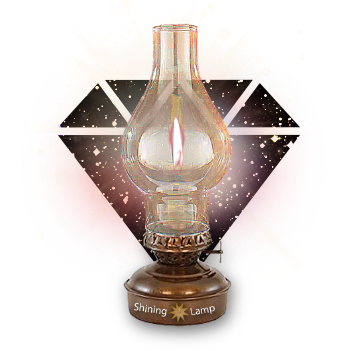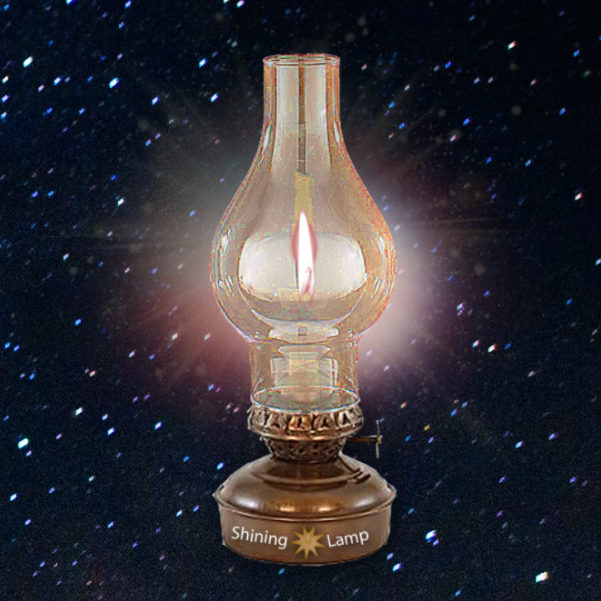
Accessible materials are imperative and should always be prepared in advance so they are available at the same time as everyone else. Braille is fundamental to literacy! However, accessible materials should be provided for Blind or Low Vision participants in their own preferred format.
Question: Is this example of inclusive practices the norm in your community? If not, what barriers need to be removed which prevent inclusive and welcoming participation?
The challenge facing the friends serving at the grassroots is essentially the same in every place. They must be able to read their own reality and ask: what, in light of the possibilities and requirements at hand, would be fitting objectives to pursue in the coming cycle or series of cycles? -- December 30, 2021 UHJ to Conference of Counselors Introducing Nine Year Plan
Striving to remove barriers that prevent us from building Vibrant, Diverse, Inclusive, Accessible Communities!

Inclusion and Accessibility for People with Disabilities are not products to be purchased or outsourced to others; they are shared responsibilities—owned personally by each of us and enacted both personally and collectively through administrative decisions made in consultation with People with Disabilities.
These core values are fundamental to building vibrant communities and should be responsibly and ethically woven into every stage—from planning to implementation and ongoing improvements. Every decision should actively and intentionally incorporate them, ensuring they are never neglected or treated as an afterthought.
Treating accessibility for People with Disabilities as an act of charity, done at our convenience and out of generosity, is a Grave Injustice (Learn Why).
Removing barriers to accessibility should be embraced as a service to humanity, guided by the principles of Unity in Diversity, Inclusion, Equity, and Justice.
Inclusion is the ongoing work of removing barriers that prevent equitable participation for People with Disabilities and other marginalized groups, ensuring a welcoming community by creating a sincere sense of belonging.
Our inclusion and accessibility accomplishments should recognize and respect the inherent and inestimable value of these otherwise marginalized people and groups, ensuring they are fully embraced as essential members of the community we are building—a community that belongs to all of us, equally and without exception.
“Advocacy is for all of us; advocacy is a way of life.” — Alice Wong.
Explore More Compelling Insights:
Learn about topics related to People with Disabilities, Accessibility, Anti-Ableism, Removing Barriers, and the Disability Community? Tap the Explore button to discover something new and intriguing with each tap!
What's New and Updated at The Shining Lamp?
Special Features:
.
About Us
Welcome to The Shining Lamp

This space is about building community.
Imagine a vibrant community where a diverse mosaic of otherwise marginalized members, including people of different Races, Disabilities, Ages, Genders, and Cultures, are warmly embraced and empowered to participate fully and inclusively in all of their community's activities and events, fostering a profound sense of belonging and unity. This web resource aims to guide the creation of vibrant communities by removing barriers to accessibility, following the Baha'i Teachings and Best Practices for Inclusive Design, and integrating these critical strategies into our community-building process. It emphasizes that everyone should feel valued and have equitable opportunities to participate, contribute, and thrive within their own communities.
A vibrant community where: Opportunities abound for diverse individuals and groups, including those historically marginalized, to engage meaningfully. In their vibrant community, children from all backgrounds receive the encouragement they need to explore and grow, while older members share their wisdom and experiences, each valued for their contributions to their vibrant community.
A Vibrant community where: People with Disabilities find that the community’s programs, services, activities, events, communications, and materials are carefully designed and planned to be fully accessible, welcoming and inclusive!
A vibrant community where you can participate in engaging activities and events that promote intergenerational interaction and cultural exchange. Imagine a vibrant community where you immerse yourself in dynamic presentations or explore cultural exhibitions that celebrate a rich tapestry of diverse histories and experiences. Such endeavors cultivate mutual respect, understanding, and unity among diverse community members. – Unity in Diversity! These efforts align with the Baha'i community-building process, linking personal growth with social transformation and fostering meaningful friendships and even stronger bonds beyond barriers of disability, race, culture, age, and class.
A vibrant community is nurturing and inclusive, committed to achieving Unity in Diversity, where everyone can thrive at every level. It's a vibrant community where diverse and accessible initiatives create an environment of mutual support and collective growth. The Baha'i emphasis on inclusivity and reciprocity ensures that everyone, feels a sense of belonging, value and purpose.
The problem is, barriers continue to exist for many marginalized people.
Marginalized groups and individuals encounter significantly greater barriers related to race, disability, gender, age, and culture often preventing the ability to participate in their community. This is primarily due to the lack of adequate planning for inclusion and accessibility, and is often influenced by majority dynamics. Sadly, this leaves us with an unbalanced community. One which is not at all like what is described above.

To build vibrant and inclusive communities, we must remove barriers and ensure balance among the three main protagonists, the Individual, the Community, and Institutions. Just as a three-legged stool needs balanced legs to support itself, a community needs balanced roles and equitable participation to thrive. Guided by Unity in Diversity, Equity, and Justice, achieving this balance is essential for building a Vibrant, Inclusive, Accessible Community.

From the many examples and stories of his travels and engagements, Abdul-Baha’s focus on Unity and Justice, and inclusion of historically marginalized populations, should guide our Reflection Gatherings and Community Building efforts. As Shoghi Effendi stated, “If any discrimination is at all to be tolerated, it should be a discrimination not against, but rather in favour of the minority, be it racial or otherwise.”
For the bedrock of the Bahá’í administrative order is the principle of unity in diversity, which has been so strongly and so repeatedly emphasized in the writings of the Cause.
-Shoghi Effendi, The Compilation of Compilations vol II, p. 90
We should adopt the principles of Unity in Diversity, Justice, and Inclusion, acknowledging the wealth of diversity in our community. Prioritizing Race Unity and eliminating all forms of racism through willful anti-racism, guided by Abdul-Baha's teachings, is essential. Recognizing systemic barriers, we must remove all forms of discrimination and ensure equitable opportunities.
Building an age-friendly community involves nurturing connections among diverse ages and supporting champions of Age-Friendly programs, services, and inclusive events.
We must remove barriers for People with Disabilities by planning ahead and ensuring that all Programs, Services, Events, and Materials are Inclusive and Accessible, through ongoing consultation with those who best understand the barriers they face.
Without these efforts, the community remains divided into factions of "haves" and "have nots," perpetuating inequalities and undermining unity, justice, and inclusion. Reflecting on Abdul-Baha's teachings, we share the responsibility to uplift all marginalized members of our community and create environments of genuine equity, inclusion, and belonging.
So what can we do about removing barriers?
How can we learn about and remove barriers that prevent us from building Vibrant, Diverse, Inclusive, Accessible Communities?
Let's find out together!
Raise awareness about accessibility
Recognized as a fundamental human right under the United Nations Convention on the Rights of Persons with Disabilities, access to information and the internet is crucial. With over one billion people globally living with disabilities, ensuring accessibility is paramount. Discover the International Accessibility Standards and their role in fostering inclusivity in your on-line publications. Join the cause by watching and sharing these videos to raise awareness and advocate to remove barriers that prevent us from building Diverse, Vibrant, Inclusive, Accessible Communities!
Accessibility: Essential for Some, Useful for All
Learn and Use the International Accessibility Standards
To ensure your communication is accessible and inclusive in emails, meetings, events, videos, newsletters, websites, apps, and other materials produced, published and used, it's vital to follow International Accessibility Standards developed using a comprehensive inclusive process. Thankfully, Accessibility Training offers free and easy-to-learn standards for you to utilize.
Plan and Host Accessible Events
Abdul-Baha exemplified unity, justice, and inclusion of marginalized people, including those with disabilities. It's crucial for event planners to prioritize accessibility for participants. Removing barriers and establishing just relationships is key to uplifting everyone and building vibrant communities.
Change our Mindset from the Medical Model to the Social Model of Disability
Shifting from the medical to the social model of disability is critical because it emphasizes the need to address systemic barriers and promote inclusivity, rather than solely focusing on fixing individual impairments.
Use ALT Text and Descriptive Images
Boost your image accessibility - learn how to write meaningful ALT text. Learn to tell the difference between simply identifying what's present in the image and offering a clear and concise description of it.
Write Inclusive Accessible Email Messages
Effective communication is crucial in creating diverse, inclusive communities, and email messages are a common tool used for sharing information. If messages aren't inclusive and accessible, they can stifle and harm community building by creating a sense of "otherness" instead of belonging. It is essential to remove these barriers and create truly diverse, vibrant, and inclusive communities.
Learn about and Use Audio Description in Video for Blind and Low Vision Accessibility
To ensure accessibility for those who are Blind or have Low Vision, be sure to use videos with Audio Descriptions for presentations and enable Audio Descriptions during presentations and video creation. This article emphasizes the importance of Audio Descriptions, their role, and how to incorporate them for a more inclusive digital world.
Fix the Unusable Flaws of Print with Online PDF for Accessibility and Inclusive Design.
Fixing the flaws of relying on print publications and online PDFs for accessibility and inclusive design is crucial in today's digital landscape. Traditional PDF formats prioritize designer control over presentation, but an inclusive approach prioritizes user control and accessibility instead. The PDF format, while offering designer control, presents significant barriers for people with disabilities, such as limited customization options and problems for screen reader users. Alternative formats and consultation with people with disabilities are essential steps towards truly useful and inclusive content creation, ensuring that digital environments are accessible and equitable for all users.
Make Materials Accessible to Your Blind Friends.
Include blind friends in meetings by providing accessible formats like braille, audio, large print, or electronic copies. Check privately for their preferred format which can be obtained easily through a certified transcriber, enabling full participation.
Take Advantage of our Resources
Remove barriers and unlock the full potential of the Shining Lamp Collection of Resources!
Stay informed with our Articles
Discover a world of illuminating insights, understanding and effective ways to take action with the Shining Lamp's online collection of articles.
Keep up to date with What's New!
Stay up-to-date with the latest and most intriguing content on the Shining Lamp website. Explore a variety of captivating articles, videos, and resources that will keep you informed and ready and able to remove barriers. Don't miss out on the opportunity to discover something new and exciting every time you visit the site.
Currently Trending on the Shining Lamp:
Explore More Compelling Insights:
Learn about topics related to People with Disabilities, Accessibility, Anti-Ableism, Removing Barriers, and the Disability Community? Tap the Explore button to discover something new and intriguing with each tap!















